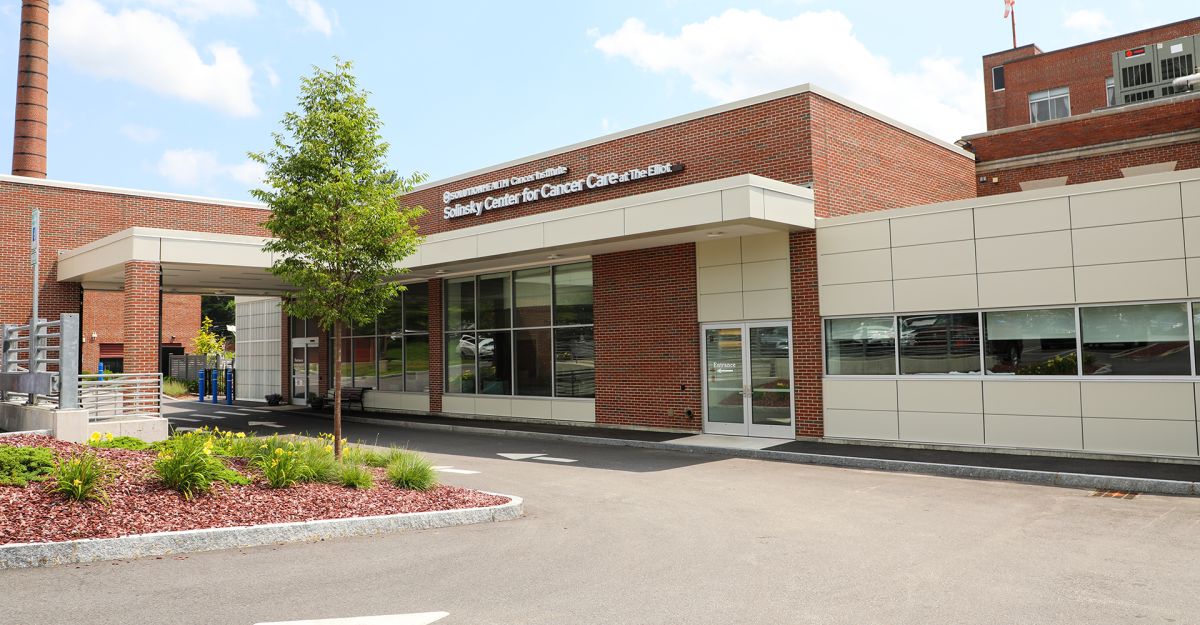Solinsky Center for Cancer Care at The Elliot
1 Elliot Way
Manchester, NH 03103
Phone: 603-663-2828
M-F
8am-5pm

1 Elliot Way
Manchester, NH 03103
Phone: 603-663-2828
M-F
8am-5pm
The Solinsky Center for Cancer Care at The Elliot offers access to hematology, radiation oncology, medical oncology, chemotherapy, and support services in a single Manchester campus with adjacent, expanded parking for easy access.
The Solinsky Center for Cancer Care at The Elliot incorporates radiation oncology, medical oncology, state-of-the-art technology, and skilled healthcare providers in an accessible and comforting environment for comprehensive care close to home.
Medical oncology is cancer treatment through chemotherapy, hormonal therapy, immunotherapy, and infusion services. Many cancers require a combination of surgical oncology, medical oncology, and radiation oncology.
Radiation oncology is cancer treatment through high-energy radiation (like X-rays or gamma rays). Many cancers require a combination of surgical oncology, medical oncology, and radiation oncology.
Surgical oncology is cancer treatment through surgery. Many cancers require a combination of surgical oncology, medical oncology, and radiation oncology.
1 Elliot Way
Manchester, NH 03103
The Elliot is committed to ensuring that all patients and visitors may easily access the building and services within the facility.
Parking is available outside of the building with easy and direct access to the Solinsky Center for Cancer Care at The Elliot.
Please do not hesitate to get in touch with any questions or concerns about your care.
To reach the radiation oncologist at night, on holidays, or on weekends, please call 603-663-1800 and ask the operator to contact the radiation oncologist on call.
To reach the medical oncologist at night, on holidays, or on weekends, please call 603-622-6484 to have the provider paged.